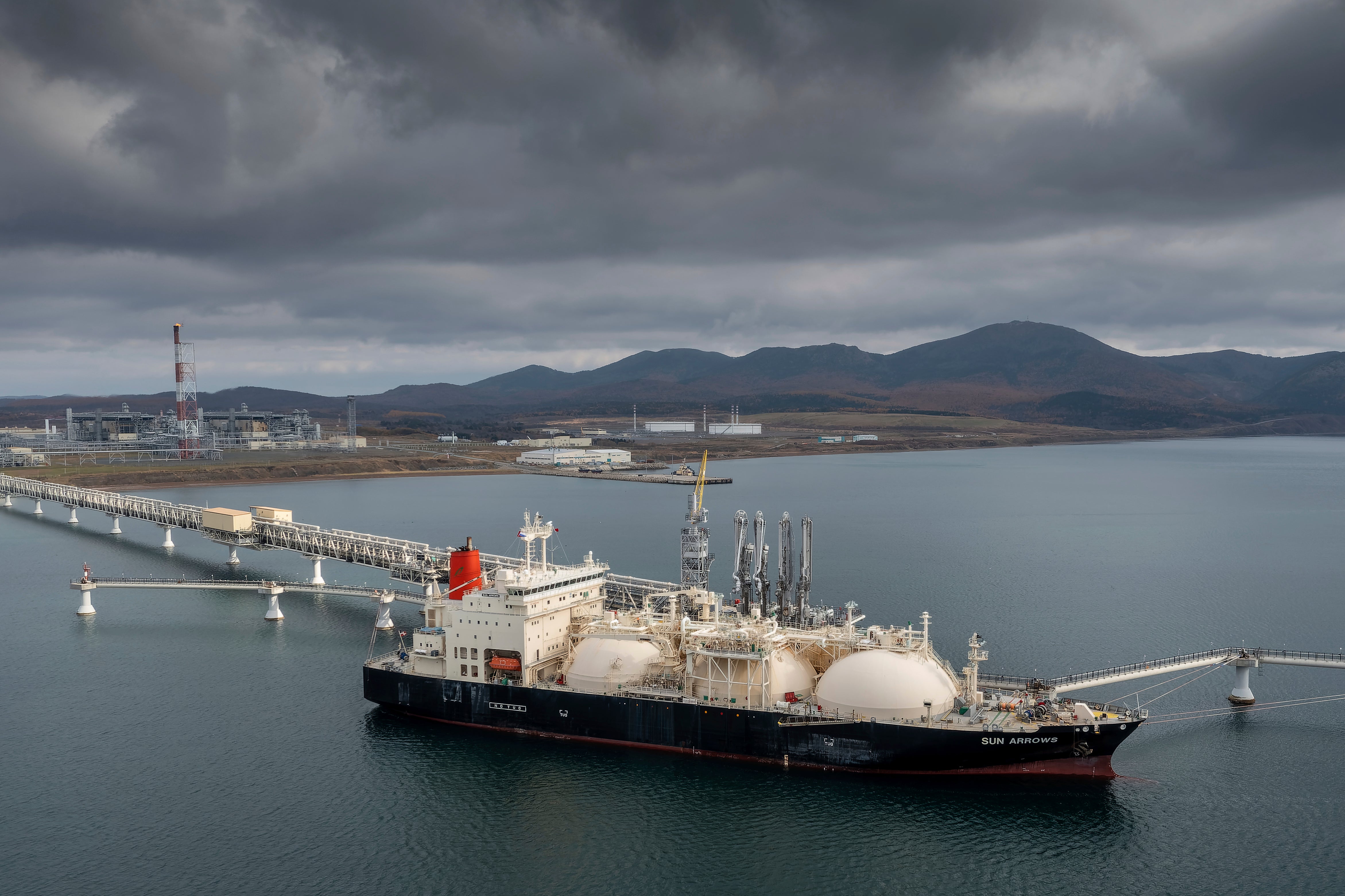We will all feel the economic pain of sanctions on Russia
Editorial: The economic pain of sanctions will be felt in every corner of the world, but that pain is the mirror image of the reciprocal damage being inflicted on the Russian economy

If sanctions aren’t hurting, they aren’t working. Though it may come as an unpleasant surprise for many in the west, this maxim applies as much to those imposing the sanctions as to those being sanctioned. Like war itself, sanctions are a lose-lose affair, and nowhere is that more dramatically the case than in energy markets.
Western governments, notably the US administration (though not the EU), are threatening boycotts of Russian oil and gas supplies. Even Germany, which before this war appeared so willing to accommodate Russian anxieties, has cancelled the next phase of its gas pipeline deliveries from the east.
Shell, among others, is pulling out of Russia. Oil traders are refusing to handle Russian orders, for fear of being punished. At the same time, Russia is threatening the west with an embargo on oil exports, effectively imposing sanctions on itself. Russia is losing precious foreign-exchange earnings from its principal export commodities, while its opponents suffer spiralling prices for food and fuel.
As ever, the poorest people, living in the world’s poorest countries, will be hit hardest as the price of a barrel of oil reaches fresh highs – maybe up to $200 or $300, from around $130 (£99) now. A further bout of inflation and recession seems inevitable. Because of the force of law, the usual economic mechanism to deal with such shocks – the adjustment of supply and demand to price signals – is interrupted. The Russian rouble will fall to fresh lows against the dollar, but to no avail, because Russia has either banned exports or had bans slapped on its producers.
So, the economic pain of sanctions will be felt in every corner of the world, but that pain is the mirror image of the reciprocal damage being inflicted on the Russian economy, and the pressure being applied to the Kremlin. If the west is not prepared to fight for Ukraine, but is serious about stopping Putin, there is no alternative to these draconian policies. They are, in any case, trivial compared with what Ukraine is going through.
How should governments respond to this latest energy shock? In the short term there is little that can be done, beyond releasing strategic reserves to stabilise prices, and persuading unhelpful regimes to boost production to compensate for the sudden cessation of Russian supplies. Hence the highly unusual delegation travelling from Washington DC for talks with President Maduro of Venezuela, previously shunned as a Marxist monster. Saudi Arabia and OPEC (the Organisation of the Petroleum Exporting Countries) may yet be prevailed upon to loosen the taps some more. Finance ministers, like Rishi Sunak, will be urged to cut taxes on energy.
None of these things, though, is a long-term solution, or one that is compatible with the still-vital targets for global CO2 emissions. In Britain, faced with the £2 litre of petrol and the average energy bill heading to £2,000 a year – along with possible shortages and outages – the obvious move by consumers will be to consume less energy and invest in insulation, solar panels and the like. Drivers can go more slowly; households can dial down the central heating – it will all help. Additional measures akin to rationing may be needed, both in the interest of fairness and to cushion the economic shock.
To keep up to speed with all the latest opinions and comment sign up to our free weekly Voices Dispatches newsletter by clicking here
As for supply, both fracking and permitting further development in the North Sea – economic at sustained high oil prices – are also unacceptable, and unnecessary, ways to reduce the nation’s dependence on fossil fuels. Such projects would take many years to have any impact, and even then it might be marginal. Had Britain invested more in sustainable energy sources, it would not have to import much gas or oil from anyone, let alone Vladimir Putin.
Britain, with willpower and investment, can be a pioneer in renewable energy. We do not have to risk the planet just to keep the lights on. Eventually, in any case, fossil fuels will run out, and the wider transition to green energy can be greatly accelerated by oil costing $200 a barrel and more.
Though hardly anticipated or intended, previous oil shocks from 1973 (when the price quadrupled) have been weathered, and acted as a great boost to more energy-efficient industrial processes, energy generation, cars and other consumer goods.
The west’s economies are far less dependent on oil and coal than they were, say, half a century ago, and the latest dramatic moves in the oil price will incentivise similar progress in the years ahead. In the longer run, it will deprive Putin, and any aggressive successors, of one of the largest sources of funding for Russia’s war machine. Though it can generate some terrifying headlines, there are two sides to the oil-price story.



Join our commenting forum
Join thought-provoking conversations, follow other Independent readers and see their replies
Comments